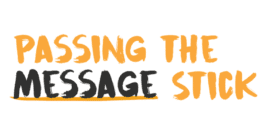Engagement and advocacy – ensuring our future

15 October 2020 at 8:36 am
If we are to build back better, charities will need to play a much more prominent role in policy making for the communities they serve, writes David Crosbie.
If there is one consistent criticism of government, it is about their capacity to translate policy announcements and funding commitments into actual programs and services. All too often we hear that the allocated funds have not been spent, that the program intention has not been achieved, that the vision outlined in the media announcement has not been realised in practice.
In many cases, these failures of implementation reflect a lack of engagement with the intended beneficiaries of programs, including charities and the many communities they serve. In some cases, it is about governments simply not having appropriate mechanisms for community engagement.
When it comes to this implementation challenge, one of the more interesting studies to arrive in my inbox in recent months was the Settlement Services International (SSI) study indicating that many multicultural communities in Western Sydney not only understood the importance of COVID-19 but were also implementing good preventative practices.
This finding flies in the face of the self-serving click bait media commentary suggesting any culture other than conservative Christian white Anglo Saxon may pose an increased risk to COVID-19 infection.
In fact, if we go back not so many months ago, it was the rich and entitled returning from their Aspen ski lodges who created some of the first COVID-19 hot-spots in Melbourne. And Karen from Brighton was not Safiya from St Albans.
SSI were so concerned about the potential for negative racial stereotyping around COVID-19 that they initiated their own data gathering project. As part of this study, they ran 25 community roundtables, consulted directly with over 45 community and sector leaders, and surveyed 810 people from diverse communities in Western Sydney, most of whom had received some information from SSI. The survey questions tested whether information about COVID-19 and supports offered by SSI and other community groups were reaching the intended audiences and having an impact on behaviour. The findings are not surprising, but unlike the ignorant racially biased commentary, these results have not gained widespread media attention:
- 100 per cent of the 810 survey respondents were aware of COVID-19
- 94 per cent engaged in three or more COVID-19 safe practices (e.g. social distancing, washing hands, etc)
- 87 per cent viewed COVID-19 as a major health threat
- most identified their preferred form of communication about COVID-19 was through direct contact with community workers and community leaders, either in person or by phone
- 95 per cent said they were receiving adequate information
- 90 per cent reported the information provided was helpful and easy to understand.
These findings are remarkable, even given the sampling being biased towards people who had contact with SSI services. I wonder how many communities across Australia would be able to report 94 per cent of their population engaging in three or more COVID-19 preventative behaviours?
As SSI CEO Violet Roumeliotis said in discussing the results, “We have found, time and time again, that for a message to get through to people, they need to hear it from their communities, and that they want support through their own community networks. To achieve this requires working effectively through engagement with community leaders and groups. Instead of broad sweeping, poorly translated messages, what we really need is to engage with the community leaders that people already trust and look to, and invest in ways we can do better to ensure a safer, fairer environment for all.”
SSI is not alone in this practice of knowing and engaging with their communities. Charities of all shapes and sizes across our entire country actively engage with their communities every day.
With over 300,000 charity workers currently receiving JobKeeper, the charities sector is struggling, but in all the charities I talk to there remains a determination to continue to work with their communities, respond to their needs, help prevent problems and provide support. The work being done by charities is now critically important in many communities.
The SSI research clearly demonstrated that drawing on the expertise of charities is one of the best strategies to prevent a highly infectious and deadly disease spreading through culturally diverse communities. Governments may make important COVID-19 announcements and produce pamphlets promoting their messages, but if the goal is encouraging communities to adopt protective behaviours, investing in community engagement is a better way to go.
Commitment to engagement and serving communities is central to the role of charities, it builds social capital that can be as important a commodity as capital assets (especially at times of crisis), but it is not widely acknowledged or valued, particularly by governments.
How many of the recent budget announcements are the product of active consultation between government and charities about ways to strengthen communities, invest in new opportunities for employment and increase productivity?
It would be easy to blame governments for not developing relevant policies with charities, but the responsibility for lack of engagement needs to be shared. As charities, we can do more to advocate for our communities publicly and politically, to offer solutions grounded in our engagement with communities, and to push back against harmful government policies that will not achieve their intended benefit.
The first steps are about documenting our work, talking about what we are achieving, creating shared knowledge about our value. The second is the promotion of that value, pushing our stakeholders, our local members, other politicians and policy makers to be aware of the benefits we are providing our communities, and the potential for improvements. Just as SSI has done.
Our future post the pandemic will depend on our collective capacity to lead communities through change. This is not just a government responsibility and it is not something business generally prioritises. If we are to build back better, charities will need to play a much more prominent role in policy making for the communities they serve.
Charities going quietly about their work may well serve to perpetuate their exclusion from government policy making and reinforce the implementation gap between government policy and practice. Never has active engagement and informed advocacy been more important to our future.







